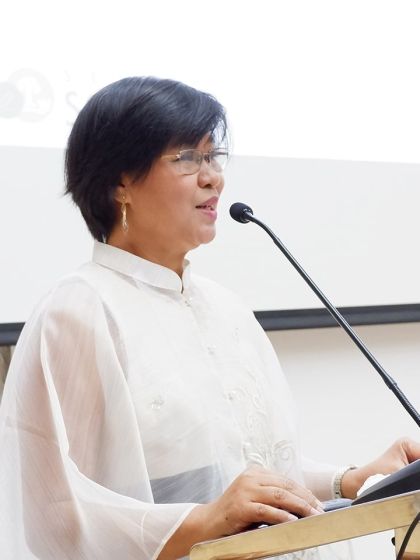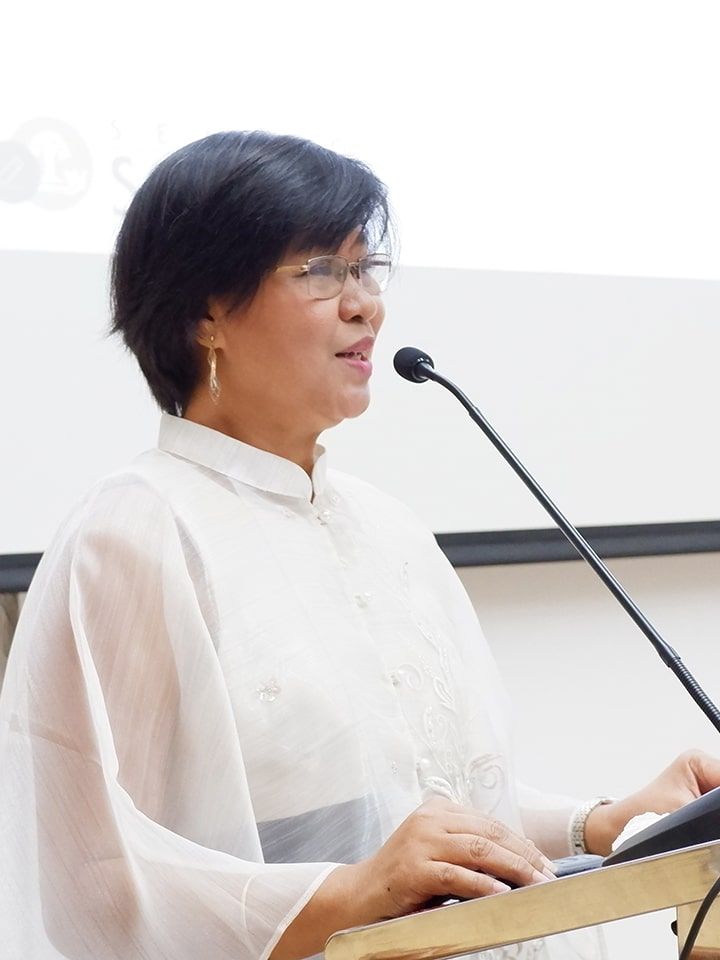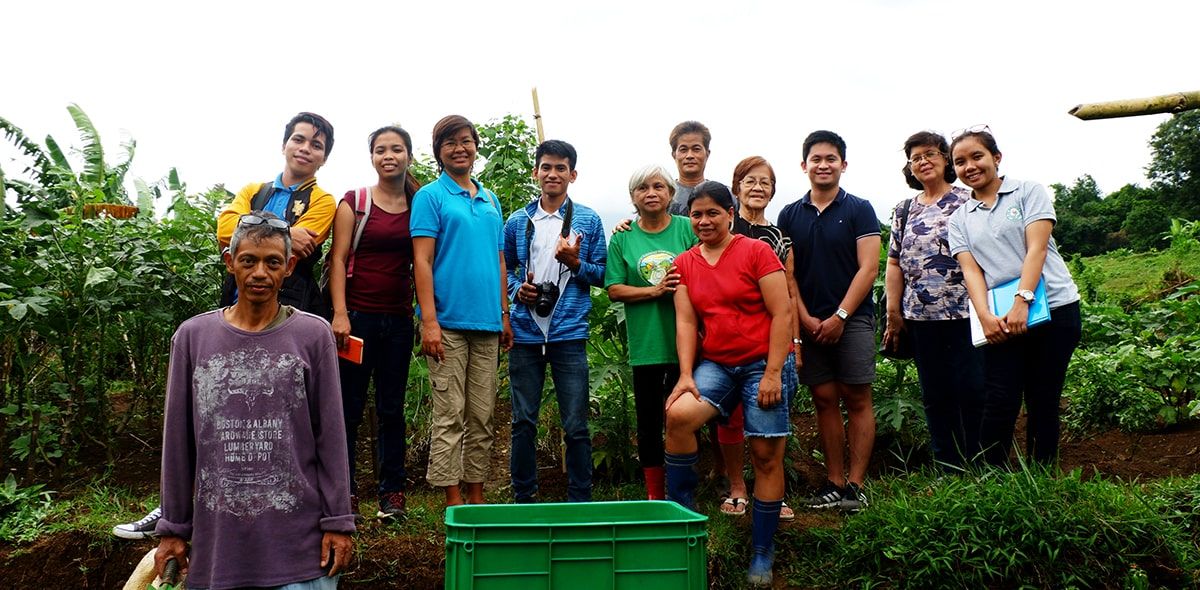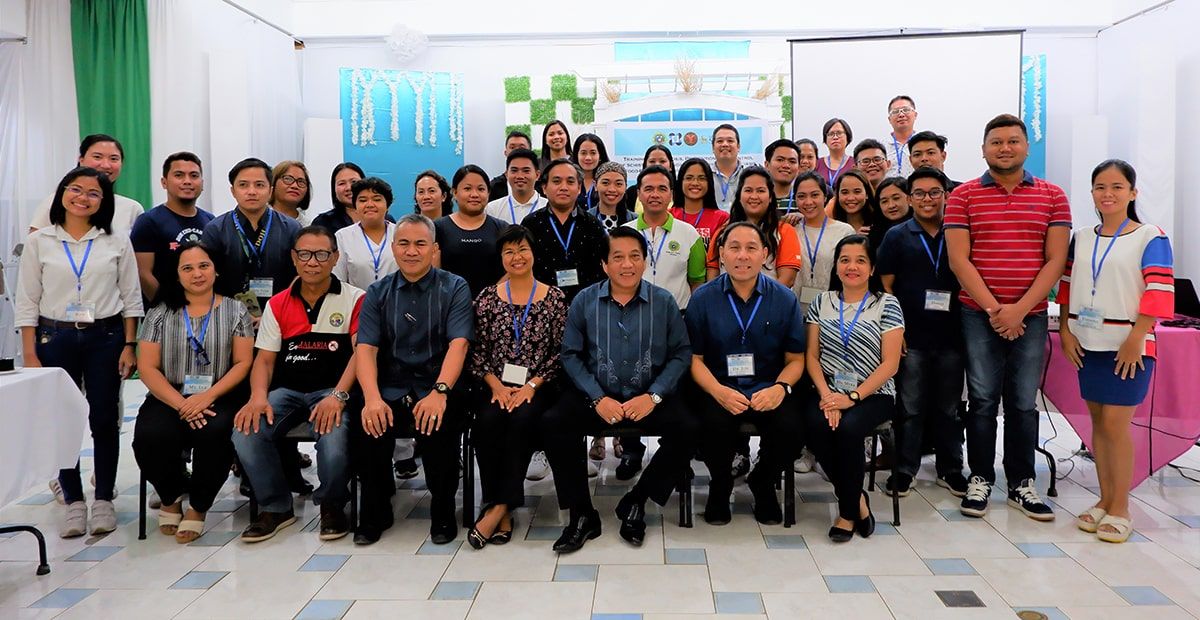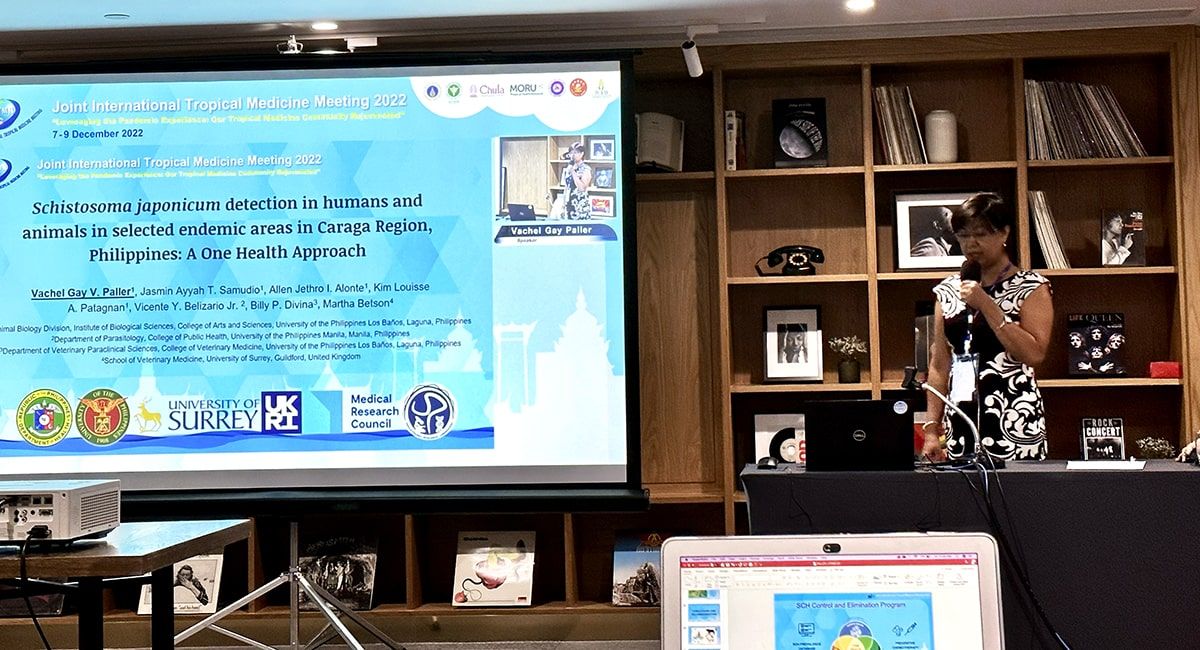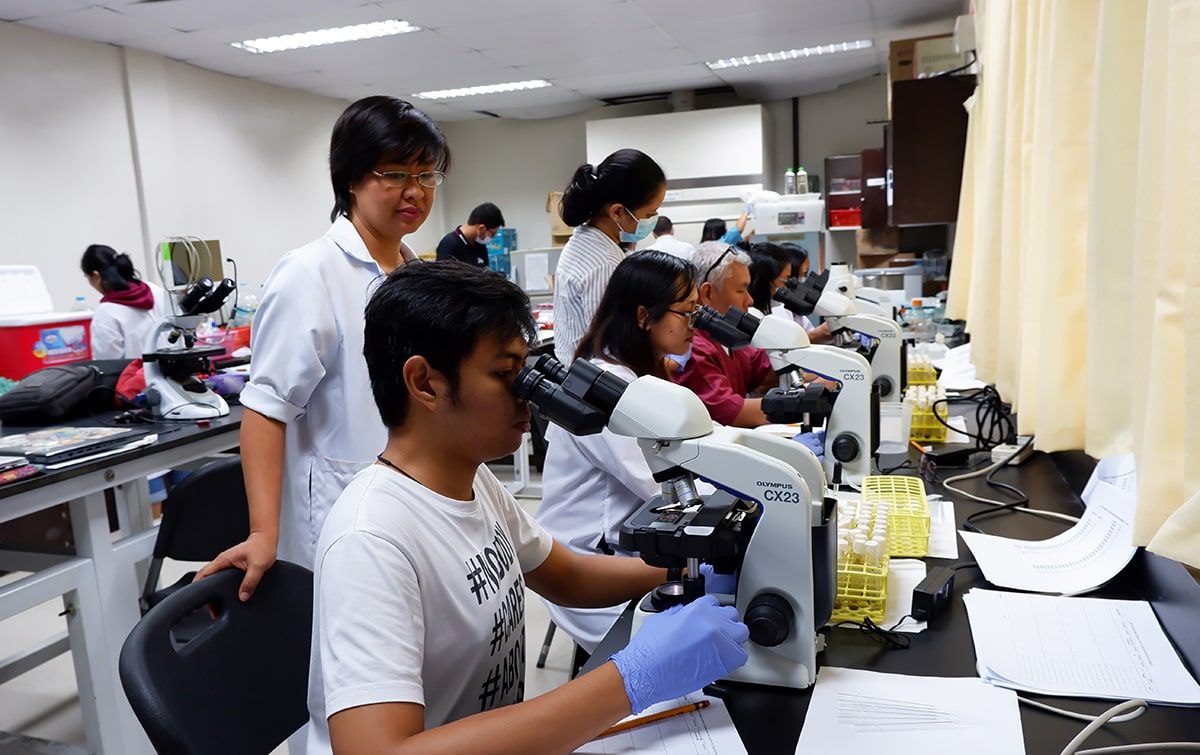The Fight against Parasites
Dr. Vachel Gay V. Paller bridges science and public health in the Philippines
Prof. Dr. Vachel Gay V. Paller has spent over two decades studying the often-overlooked world of parasites. This world, if ignored, can have profound consequences for public health and food security. As a distinguished faculty member at the Institute of Biological Sciences (IBS), College of Arts and Sciences (CAS) at the University of the Philippines Los Baños (UPLB), Prof. Dr. Paller demonstrates the power of science in service to the people.
"My contributions toward understanding the world of parasites help people in their struggle against parasitic diseases."
As a testament to her exceptional contributions, Prof. Dr. Paller currently holds the rank of UP Scientist III, which is the highest honor under the UP Scientific Productivity System. Her career as a decorated researcher and educator is built upon a strong academic foundation, with undergraduate and master's degrees in Zoology from UPLB and a Doctor of Science in Medical Science (Parasitology) from Kobe University in Japan. Her numerous awards, including the 2021 DOST-NRCP Outstanding Achievement Award and the 2021 UPLB Outstanding Researcher Award, alongside prior recognition as an outstanding teacher and UPLB alumna, underscore her unwavering commitment to scientific excellence. The SEARCA Regional Professorial Chair Grant awarded to Prof. Dr. Paller further acknowledges her lifetime commitment to scientific excellence and her enduring impact.
"My academic journey in biological science has been deeply rooted in my fascination with the natural world, which began in elementary and high school," she reflects.
This early curiosity evolved through her active participation in science fairs and investigative projects. Although her parents initially encouraged her to pursue a career in medicine, Prof. Dr. Paller chose another path that allowed her to combine her love for biology with a vision of improving public health through research and education.
Prof. Dr. Paller's specialization in parasitology is not just an academic pursuit, it is a mission. Her work encompasses zoonoses, public health parasitology, parasite ecology, and the One Health approach, which integrates human, animal, and environmental health.
"My contributions toward understanding the world of parasites help people in their struggle against parasitic diseases," she says.
Through government-funded projects, Prof. Dr. Paller has focused on the presence of parasites in food, water, and livestock, generating critical awareness and influencing public health policies.
Collaboration is the key to Prof. Dr. Paller's impactful approach. Her extensive network of partnerships spans a diverse range of government agencies, including the Department of Science and Technology (DOST) to the Department of Agriculture-Bureau of Agricultural Research (DA-BAR), Department of Environment and Natural Resources (DENR), Department of Tourism (DOT), Department of Education (DepEd), and local government units. These partnerships amplify the reach and impact of her research findings, translating scientific discoveries into tangible policy briefs addressing critical issues in animal and public health, food safety, and food security. Notably, her work on the Seven Lakes of San Pablo in Laguna, Philippines has provided crucial insights for sustainable lake ecosystem management. Furthermore, a significant project in the Caraga region of Mindanao addressed parasitic infections in marginalized agricultural communities, directly influencing local diseases control strategies.
However, Prof. Dr. Paller's journey has not been without challenges. Like many researchers in the Philippines, she has navigated the complexities of bureaucratic and funding constraints.
"Procurement for research within government agencies presents a unique set of challenges," she shares.
These include delays due to stringent compliance requirements and limited budgets that can hinder access to updated equipment and technologies. To overcome this, she sought international collaborations and funding opportunities that have helped modernize her laboratory and enhance data analysis capabilities.
Prof. Dr. Paller also acknowledges the challenge of work-life balance, especially under the pressures of deadlines and intensive fieldwork.
"To tackle this, I implemented better time management strategies, such as setting clear goals, prioritizing tasks, and scheduling regular breaks," she says.
Another challenge for Prof. Dr. Paller was collaborating with interdisciplinary teams, where differing viewpoints and methodologies lead to misunderstandings. She emphasized that developing soft skills such as communication and team building has been key in successfully managing such diverse teams.
Currently, Prof. Dr. Paller is at the forefront of an international research initiative titled "Anthelmintic Resistance in Southeast Asia: Implications for Parasite Control and Elimination." This collaborative project, involving University of Surrey in the UK, Mahidol University in Thailand, and the University of Malaya in Malaysia, directly addresses the growing concern of resistance to deworming medications, which is a critical issue for the Philippines' national deworming programs.
"We need to assess and monitor potential anthelmintic resistance, especially in rural areas, as it has implications for the effectiveness of the deworming program," she explains.
Prof. Dr. Paller's team also conducts capacity-building activities that champion the One Health approach, promoting knowledge-sharing and collaboration among stakeholders across sectors. These initiatives not only improve disease response strategies but also empower local communities with the essential tools and knowledge to effectively manage prevalent health threats.
Looking ahead, Prof. Dr. Paller envisions the development of rapid diagnostic kits for parasitic infections such as schistosomiasis, zoonotic malaria, and soil-transmitted helminths. These diseases continue to afflict rural and agricultural communities.
"I aim to establish a comprehensive, community-based control strategy specifically targeting schistosomiasis and soil-transmitted helminths," she shares.
However, she astutely acknowledges that such efforts require interdisciplinary, and interagency collaboration to be truly effective.
Beyond her achievements in research and policy, Prof. Dr. Paller considers mentorship a cornerstone of her professional life.
"I take great pride in mentoring and inspiring students and young professionals," she says.
Her mentorship approach is deeply personal, customized to each student's unique strengths and goals.
"Witnessing their progress and success, whether it's landing a dream job, mastering a new skill, or overcoming obstacles, fills me with immense pride."
Prof. Dr. Paller offers invaluable wisdom for aspiring researchers: cultivate curiosity, be open to feedback, and prioritize the development of both technical expertise and soft skills. She urges young professionals to be resilient, pursue diverse experiences, and set clear career goals.
"Celebrate small wins along the way and remain focused on your long-term aspirations," she advises.
Prof. Dr. Vachel Gay V. Paller's life work is a powerful combination of science and service. Her legacy is not only in the knowledge she has produced but also in the lives she has positively impacted through instruction, research, and her dedication to the health and well-being of communities across the Philippines.
